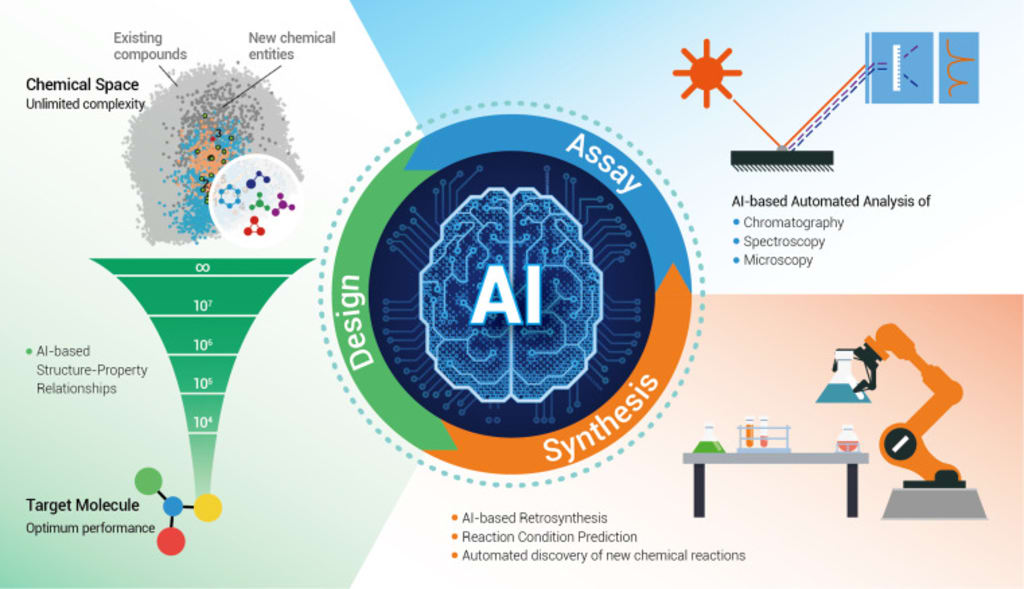The Role of artificial intelligence in advancing scientific research
"Revolutionizing Scientific Research: The Impact of Artificial Intelligence"

Artificial Intelligence (AI) has been a hot topic in recent years, and its impact on scientific research cannot be overstated. From data analysis to simulation modeling and prediction, AI has become an essential tool for scientific discovery, enabling researchers to tackle problems in new ways and at unprecedented scale. In this article, we will explore the role of AI in advancing scientific research and highlight some of the significant contributions it has made in various fields.
Data Analysis
One of the significant contributions of AI in scientific research is its ability to analyze vast amounts of data. With the explosion of data generated in scientific research, traditional data analysis methods can be time-consuming and often miss subtle patterns or correlations. AI-based techniques, such as machine learning algorithms and deep learning networks, can efficiently process large datasets, identify hidden patterns and correlations, and provide insights that can be used to advance research.
For instance, in genomics research, AI has been used to analyze large-scale genomics data, identify gene variants, and predict disease risk. In neuroscience, AI has been used to analyze brain imaging data, identify brain regions involved in specific functions, and predict outcomes for patients with neurological disorders. In drug discovery, AI has been used to analyze chemical structures and predict drug efficacy, significantly reducing the time and cost of developing new drugs.
Simulation Modeling
Another significant contribution of AI to scientific research is its ability to simulate complex systems and processes. AI-based simulation models can incorporate vast amounts of data and simulate real-world scenarios, enabling researchers to explore hypothetical situations and test new ideas without the need for expensive or dangerous experiments.
For instance, in climate science, AI has been used to simulate climate models and predict the impact of climate change on different regions of the world. In physics, AI has been used to simulate high-energy particle collisions and predict the behavior of particles in different environments. In engineering, AI has been used to simulate the performance of complex systems, such as aircraft engines, and optimize their design for better efficiency and safety.
Prediction and Decision Making
AI-based prediction models have been a significant contribution to scientific research. AI algorithms can identify patterns in data and make predictions about future outcomes or events. This capability has applications in a wide range of fields, including healthcare, finance, and social sciences.
For example, in healthcare, AI-based prediction models have been used to predict disease outbreaks and monitor the spread of infectious diseases. In finance, AI has been used to predict stock prices and identify trends in financial markets. In social sciences, AI has been used to predict voting patterns, public opinion, and social trends.
AI-based decision-making models have also been significant in scientific research. AI algorithms can analyze data and provide recommendations or decisions based on that analysis. This capability has applications in fields such as business, healthcare, and public policy.
For example, in healthcare, AI-based decision-making models have been used to recommend treatment plans for patients based on their medical history and symptoms. In business, AI has been used to recommend products or services based on customers' preferences and purchase history. In public policy, AI has been used to recommend policies based on data analysis and simulations.
Challenges and Opportunities
While AI has made significant contributions to scientific research, it also presents challenges and opportunities for researchers. One of the most significant challenges is the ethical implications of AI-based research. For instance, AI algorithms can be biased, leading to unfair or discriminatory outcomes. Researchers must develop and implement ethical guidelines to ensure that AI-based research is conducted ethically and responsibly.
Another challenge is the need for interdisciplinary collaboration. AI-based research requires collaboration between researchers from different fields, including computer science, engineering, mathematics, and natural sciences. Researchers must develop interdisciplinary collaborations to ensure that AI-based research is conducted effectively and efficiently.
However, AI also presents opportunities for scientific research. For instance, AI can be used to analyze large and complex datasets that would be impossible for humans to analyze manually. AI can also be used to simulate scenarios that are difficult or impossible to replicate in the real world, allowing researchers to explore a wide range of possibilities and test new ideas without risking harm to people or the environment. Additionally, AI can help researchers identify new patterns, connections, and relationships that may have gone unnoticed using traditional research methods.
In conclusion, AI has become an essential tool in scientific research, enabling researchers to analyze data, simulate scenarios, and make predictions with unprecedented accuracy and scale. Its contributions have been significant, from drug discovery to climate science, and it has the potential to revolutionize many other fields in the future. However, researchers must also be mindful of the ethical implications of AI-based research and work together across disciplines to ensure that AI is used responsibly and effectively. As AI technology continues to evolve, it will undoubtedly play an increasingly important role in advancing scientific research, leading to new discoveries and innovations that will benefit humanity for years to come.





Comments
There are no comments for this story
Be the first to respond and start the conversation.